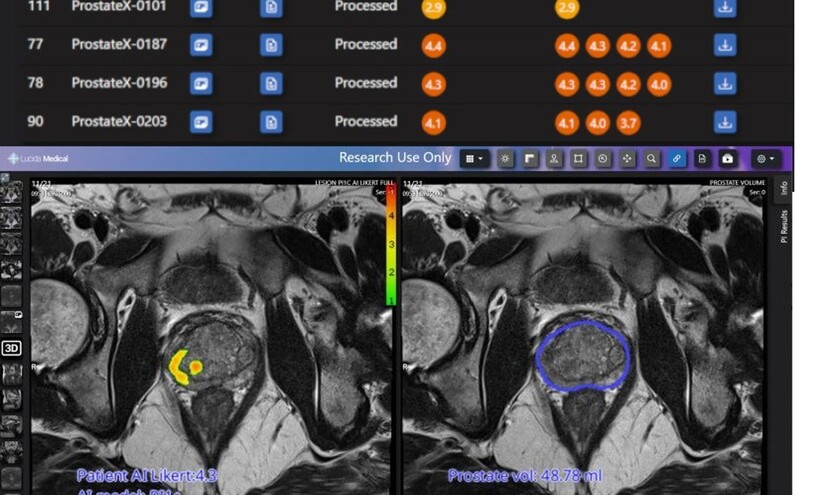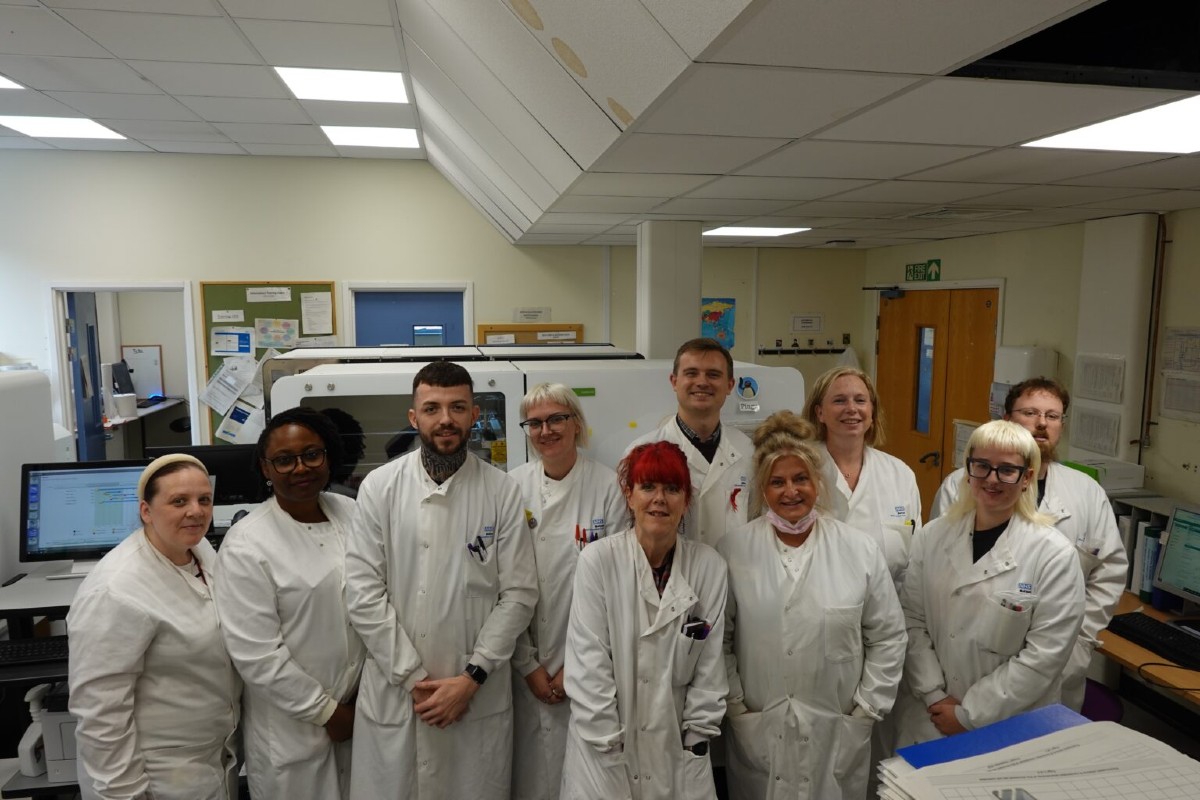The new ‘one stop shop' pilot, funded by NHS England, will use AI to interpret MRI scans for men with suspected prostate cancer, helping spot lesions in a matter of minutes.
The AI tool is being trialled at up to 15 NHS hospitals with a pilot set to begin at the Leeds Teaching Hospitals NHS Trust early next year of a new ‘rapid diagnosis' pathway to offer all investigations within one day.
The Leeds pilot will use the AI tool Pi, developed by Lucida Medical, to substantially increase the numbers of patients having suspected cancer diagnosed or ruled out within 28 days.
In other sites, the tool – which research suggests can spot 95% of cancers – will be used in 10,000 scans to assist radiologists in reporting cancers and the decision-making process for next steps.
If a scan is found to have a high-risk of cancer by the AI software, it will be sent immediately to a radiologist for priority review and the patient will be booked in for a biopsy the same day. This gives doctors everything they need to either potentially give an all clear the same day or confirm a cancer diagnosis a few days later, following review.
If the trial is successful, and the pathway can be rolled out widely across the NHS in future, it could lead to thousands being diagnosed and treated sooner.
The faster diagnosis pathway could also help move care closer to home for patients, with AI-assisted MRI scans potentially being able to be performed in Community Diagnostic Centres if found to be successful.
Professor Peter Johnson, NHS national clinical director for cancer, said: 'We are determined to see more patients diagnosed or given the all-clear quicker, and combining the latest technology with this new testing pathway will give clinicians the tools they need to provide patients with peace of mind or pin down a cancer diagnosis as soon as possible.'
Health secretary, Wes Streeting, added: ‘By harnessing the power of technology we are revolutionising our NHS and tackling this, with AI able to deliver same day prostate diagnoses – delivering better outcomes for patients and fast support for doctors.
'This is modernising the NHS, making it fit for the future and boosting productivity and efficiency – ending needlessly long and apprehensive waits for test results, enabling patients to begin treatment as fast as possible and saving lives.'
Lucy Davies, vice-president of clinical at Lucida Medical and NHS innovation accelerator fellow, said: 'Through our partnership with Leeds Teaching Hospitals and NHS England, we aim to show that our technology Pi can help doctors rapidly identify men with prostate cancer. This has the potential to enable a more efficient care pathway, supporting a "one stop shop" for diagnosis, ultimately leading to improved outcomes for patients and cost savings.'
The project is one of seven pilots backed by a £14m investment aimed to improve the early detection of cancer, as part of the NHS Cancer Programme Innovation Open Call.



